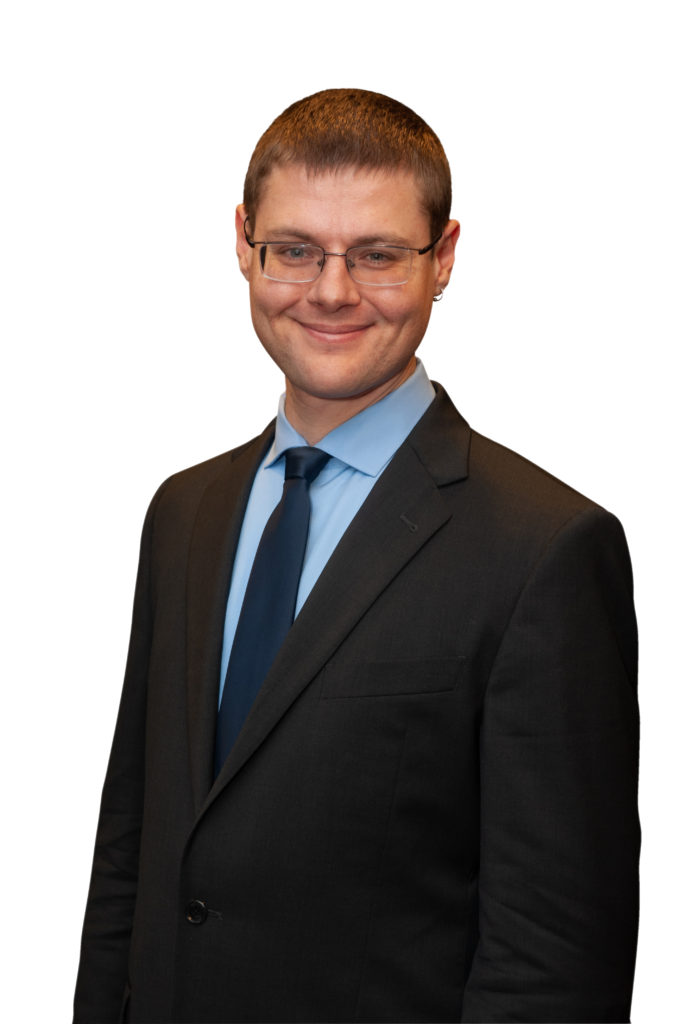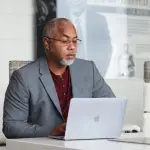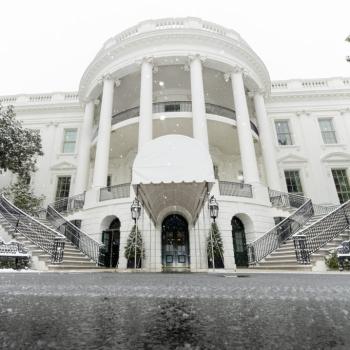
As hybrid work continues to shape the modern workplace, businesses must navigate the complexities of balancing remote and in-office work. Jeff Williams, former Vice President of Enterprise and HR Solutions at Paychex and current President and CEO at Aptia, did an interview with me to share his insights on the benefits and challenges of hybrid work, emphasizing the necessity of employee buy-in regarding the office’s purpose.
The Benefits of Hybrid Work
Hybrid work arrangements offer significant advantages for both employees and employers. Williams outlines these benefits, noting that hybrid work is crucial for employee well-being and cost management. “Our research tells us that maintaining hybrid work arrangements is really important for workers’ well-being,” he explains. “In an inflationary environment, it’s also vital for helping workers control their costs of work.”
Employees appreciate the flexibility hybrid work provides, leading to higher job satisfaction and better work-life balance. From an employer’s perspective, hybrid work opens up a larger talent pool by addressing geographical constraints. “In a very tight labor market, being able to recruit from a much larger applicant pool is a real benefit,” Williams says. This broader access to talent can significantly enhance a company’s ability to find the right skills and expertise.
The intersection of employee and employer benefits is where the true potential of hybrid work lies. Williams highlights the concept of “presence with purpose,” where in-person interactions are reserved for activities that require deep collaboration and strategic planning. “It’s not just about being somewhere to be present,” he notes, “but being somewhere to drive a better employment experience and better business performance.”
Challenges in Hybrid Work
Despite the benefits, hybrid work also presents several challenges. Williams points out the difficulties in long-term planning for facilities, recruiting, and business strategy. “It still feels a little unsettled,” he admits. Companies are grappling with how to maintain productivity and cohesion when employees are not always physically present.
One significant challenge is the “if I can’t see it, maybe it’s not happening” mindset among managers. This lack of visibility can lead to concerns about command and control. Williams emphasizes the importance of training managers to handle hybrid teams effectively. “Many companies celebrated their ability to withstand going home over a weekend and standing up the company” in a remote setting, he says, but now they face the challenge of maintaining productivity and engagement in a hybrid environment.
Employees also face challenges, particularly related to mental health and isolation. Pre-pandemic, about one in five employees experienced mental health challenges at work; now, that number is closer to one in three. The lack of daily human interaction and support networks can exacerbate feelings of isolation. Additionally, practical issues such as equipment malfunctions and tasks that require in-office presence add to the complexity of hybrid work.
Addressing Managerial Challenges
To address the concerns of managers who struggle with hybrid work, Williams suggests focusing on the purpose behind in-office days. “Why do I want people here Tuesday, Wednesday, and Thursday?” he asks. By aligning in-office presence with activities that drive business performance and employee engagement, companies can create a more compelling reason for employees to come into the office.
Williams also advocates for a level playing field for remote and in-office employees. “If you’re making social time for those in the office, make social time on Zoom for those that are out of the office,” he advises. Ensuring fairness and equity in monitoring and performance evaluation is crucial. “You need to have a sense of fairness and balance across all your populations,” he stresses.
Co-Constructing the Future of Work
A critical aspect of successful hybrid work policies is involving employees in the decision-making process. Williams emphasized the importance of getting buy-in from team members.
Leaders should consider employees’ feedback and prioritize their needs when designing hybrid work policies. For example, commuting is a significant concern for many employees, particularly those with long travel times. Williams suggests flexibility in scheduling, allowing employees to avoid peak commute times while still working their designated eight hours. “We’ll allow that eight hours to be 7 am to 3 pm or 10 am to 6 pm,” he proposes, highlighting the importance of balancing business needs with employee preferences.
Overcoming Proximity Bias
Proximity bias, where employees who are physically closer to their managers receive favorable treatment, is a real concern in hybrid work environments. Williams advises grounding decisions in data and performance standards to mitigate this bias. “You need to be transparent about what you expect from work and have fair reward and incentive systems in place,” he says.
Leaders should also be mindful of socio-demographic differences that affect who can work from home effectively. Ensuring that performance standards are clear and measurable, regardless of an employee’s location, helps create a fair and inclusive workplace.
The Future of Flexible Work
Looking ahead, Williams believes flexible work is here to stay. “Access to larger labor pools, more accommodation for big commutes, and a variety of roles as you grow a career—these trends are here to stay,” he asserts.
He acknowledges that the physical workspace will need to adapt. “The physical footprint that’s left is designed to operate at capacity, and we’re not filling it with capacity,” he notes. Future office designs will likely focus more on collaborative spaces and less on traditional walled-off offices.
The continued globalization and automation of work will also play a significant role in shaping the future of work. While these changes can be disruptive, they also offer tremendous economic opportunities. Williams encourages both business leaders and employees to embrace resilience and adaptability.
Conclusion
Hybrid work offers numerous benefits but requires careful management and employee buy-in. By focusing on the purpose of in-office days, involving employees in policy-making, and ensuring fairness and transparency, companies can successfully navigate the complexities of hybrid work and create a thriving, flexible workplace. Williams’ advice on this point aligns well with the suggestions I give clients in consulting with them on how to overcome the frustrations of hybrid work, and I hope leaders will adopt the wise words shared by Williams in our interview.
Key Take-Away
Hybrid work fosters flexibility and access to talent but requires purpose-driven in-office collaboration, equity, and employee involvement to overcome challenges like proximity bias and managerial adaptation…>Click to tweet
Image credit: Tima Miroshnichenko/pexels
Dr. Gleb Tsipursky was named “Office Whisperer” by The New York Times for helping leaders overcome frustrations with hybrid work and Generative AI. He serves as the CEO of the future-of-work consultancy Disaster Avoidance Experts. Dr. Gleb wrote seven best-selling books, and his two most recent ones are Returning to the Office and Leading Hybrid and Remote Teams and ChatGPT for Thought Leaders and Content Creators: Unlocking the Potential of Generative AI for Innovative and Effective Content Creation. His cutting-edge thought leadership was featured in over 650 articles and 550 interviews in Harvard Business Review, Inc. Magazine, USA Today, CBS News, Fox News, Time, Business Insider, Fortune, The New York Times, and elsewhere. His writing was translated into Chinese, Spanish, Russian, Polish, Korean, French, Vietnamese, German, and other languages. His expertise comes from over 20 years of consulting, coaching, and speaking and training for Fortune 500 companies from Aflac to Xerox. It also comes from over 15 years in academia as a behavioral scientist, with 8 years as a lecturer at UNC-Chapel Hill and 7 years as a professor at Ohio State. A proud Ukrainian American, Dr. Gleb lives in Columbus, Ohio.














